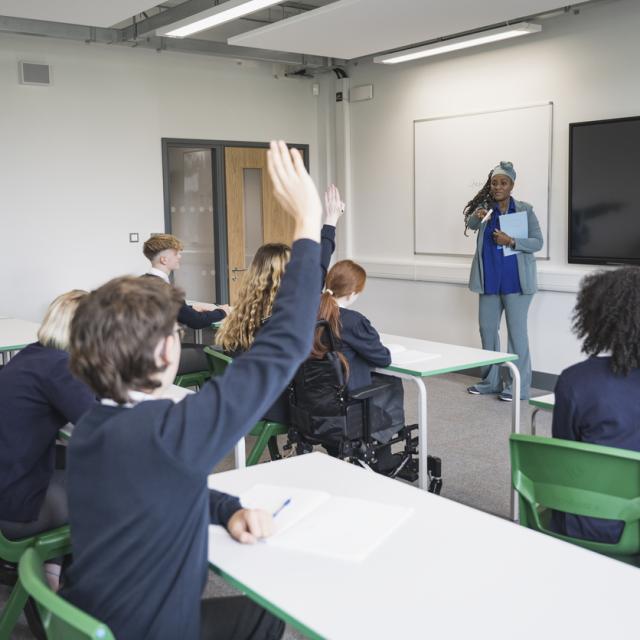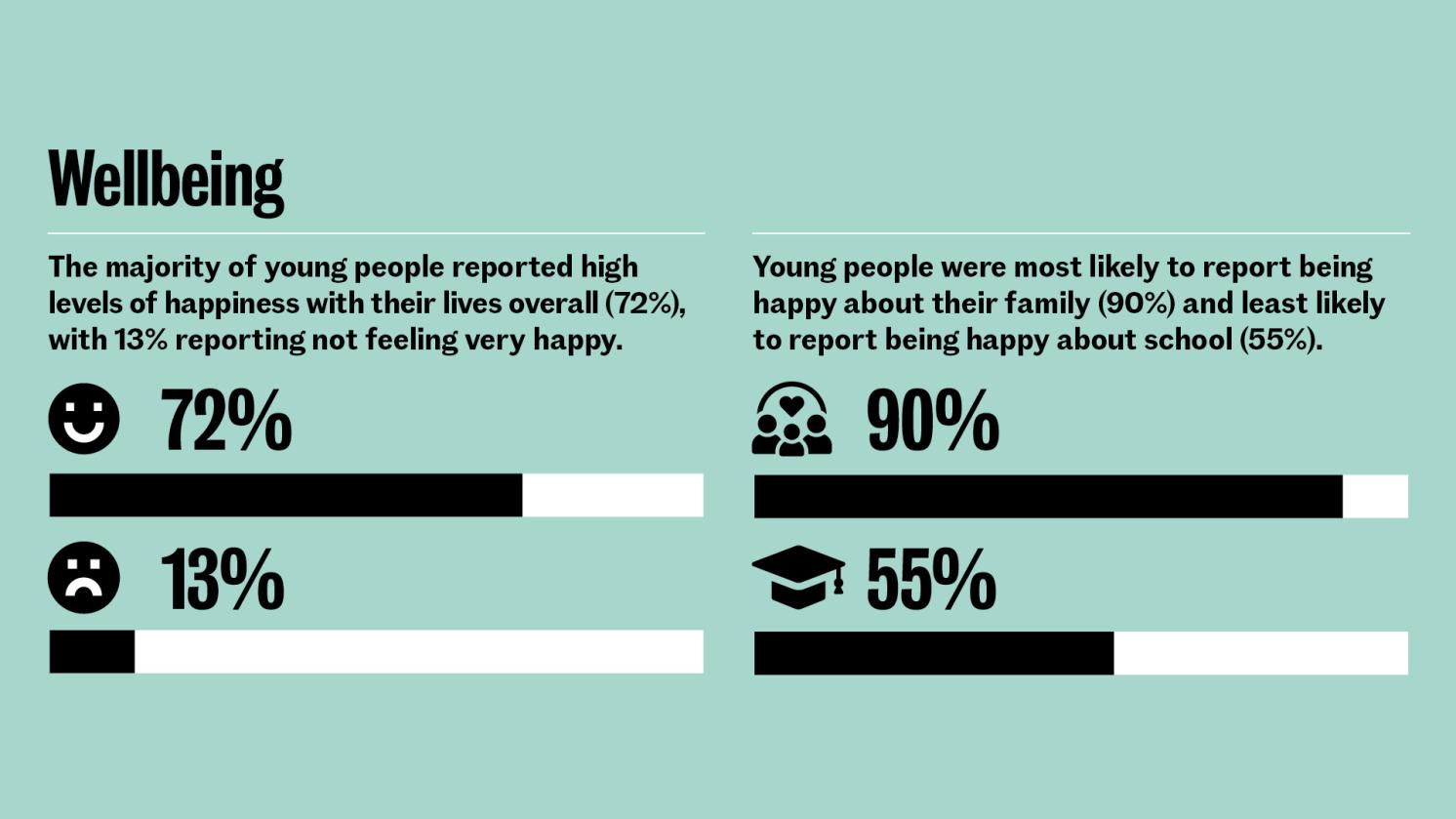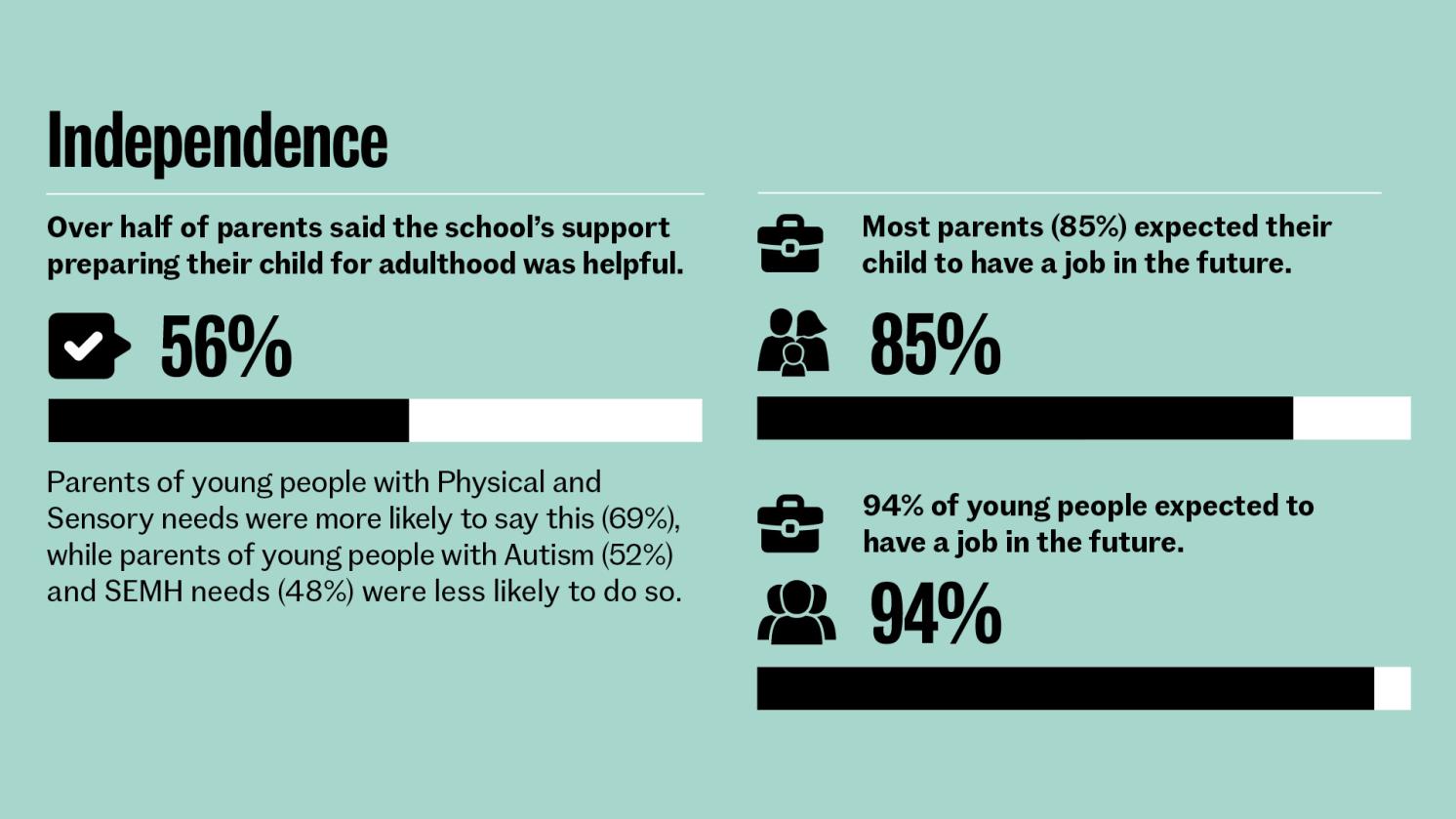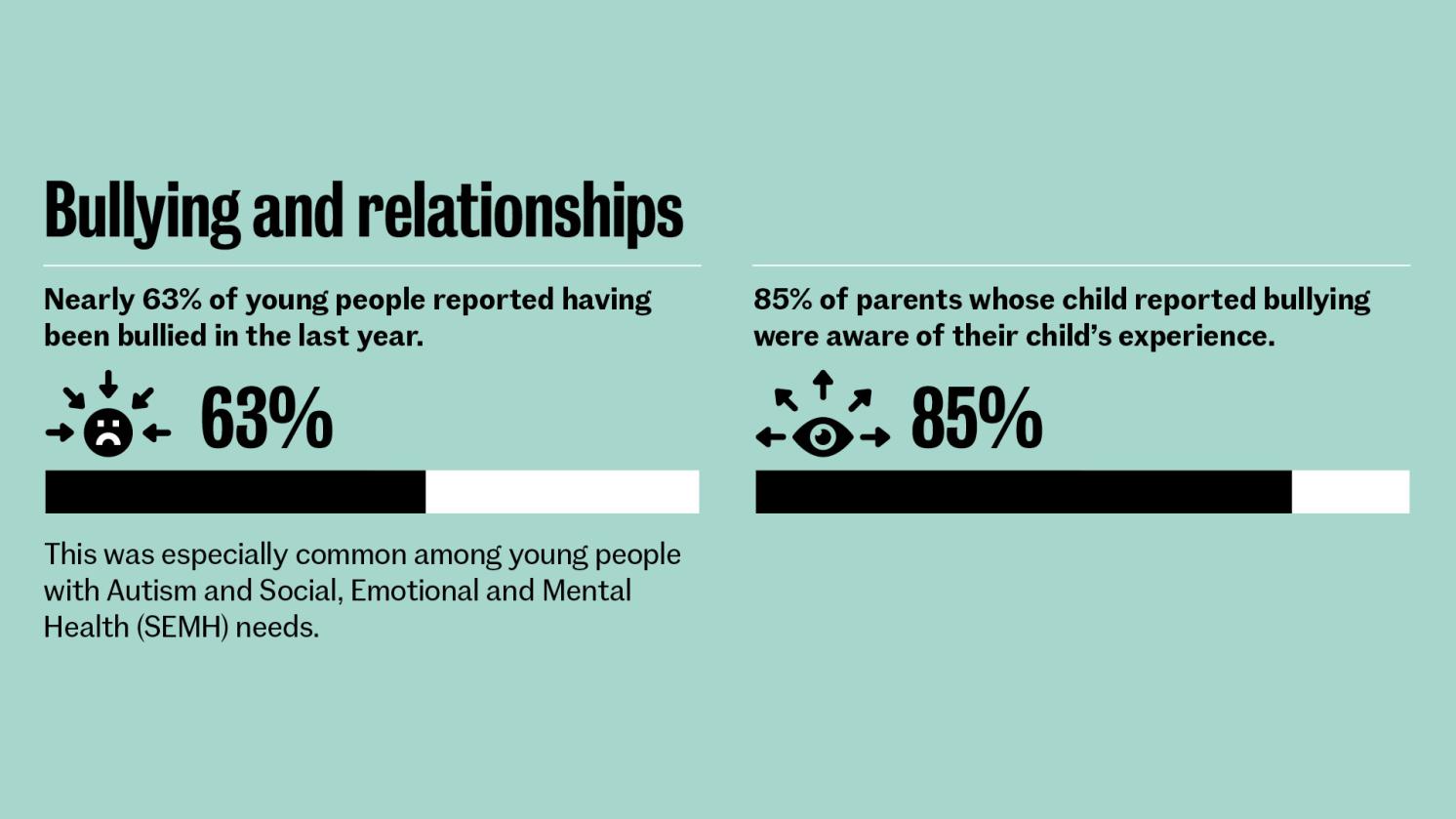New analysis from the SEND Futures study: How are young people with SEN getting on?


The SEND Futures Discovery Phase study is a two-wave feasibility study carried out by the National Centre for Social Research (NatCen), in collaboration with the National Children’s Bureau (NCB) on behalf of the Department for Education. The study is informing plans to establish a large-scale longitudinal survey with children and young people with special educational needs and disabilities (SEND) in England.
In the first wave of the study (undertaken in spring/summer 2022), surveys were carried out with young people with SEN aged 12-13 and their parents or guardians. Data were collected on a range of topics including details of the young person’s needs, the support they received and any unmet needs, the young people’s experiences at school, and their wellbeing and expectations for the future.
Drawing on data from wave 1 of the Discovery Phase study, this report describes the wellbeing, peer relationships and experiences of bullying, as well as current and expected future levels of independence among young people with SEN. It investigates how these outcomes and experiences varied across different groups of young people – specifically, those with different types of primary need, those attending different educational settings (mainstream schools, special schools and Alternative Provision), and those who had and did not have an Education, Health and Care Plan (EHC plan).
These infographics can also be found as a downloadable file at the end of this page.







Receive a regular update, sent directly to your inbox, with a summary of our current events, research, blogs and comment.
Subscribe